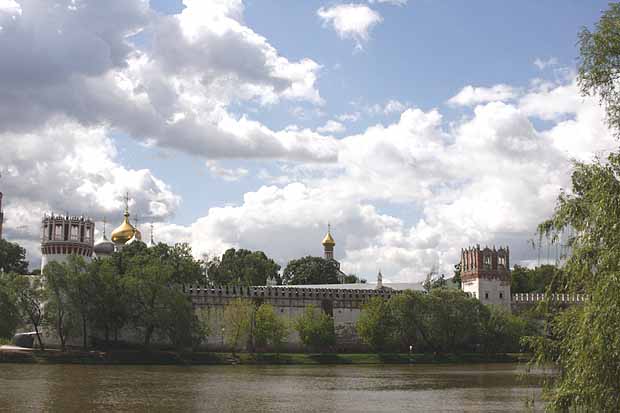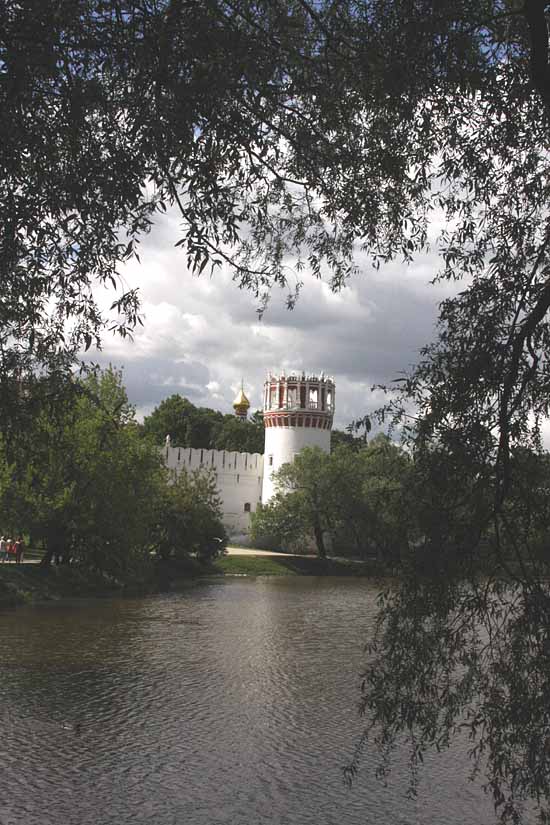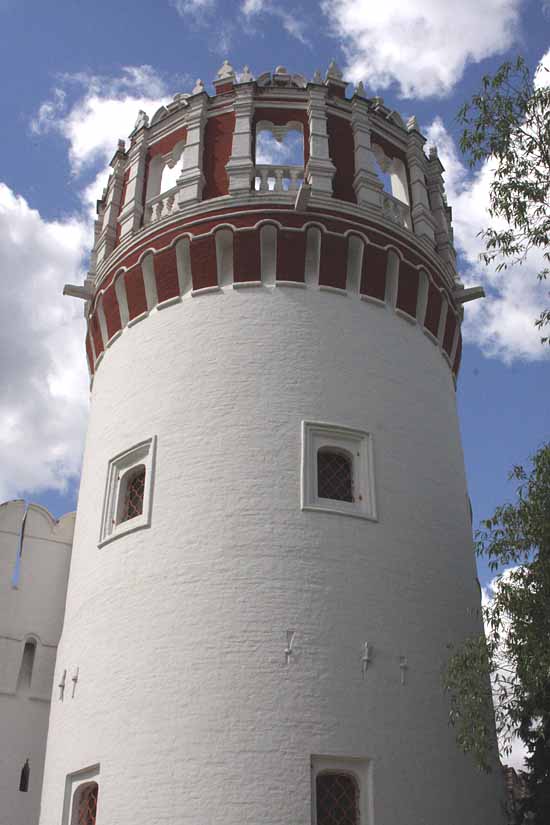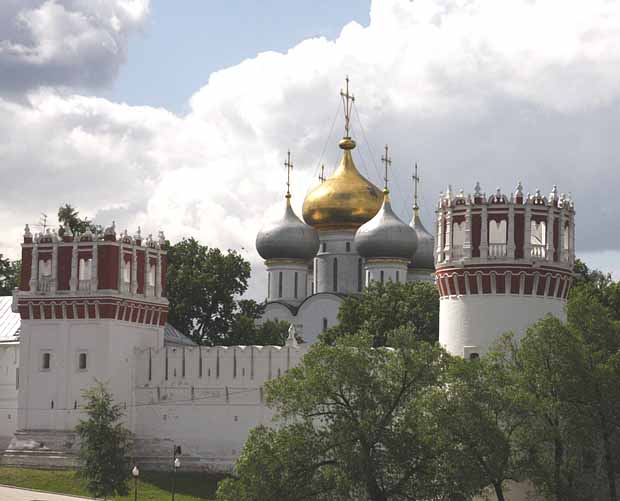|
The Novodevichy Convent was founded by Vasily III in 1524 to commemorate the recapture of Smolensk from the Lithuanians a decade earlier. The fortified walls and towers were added at the end of the 16th century. Novodevichy was the richest of Russia's many convents and many noble women took the veil there. In 1589 Boris Godunov was crowned in the convent's gardens and he subsequently decorated the walls of the cathedral with frescos depicting historic episodes related to the unification of Russia. The Polish and Swedish army captured the convent in 1612, but were quickly expelled by a volunteer army led by Kuzma Minin and Dmitry Pozharsky (their statue sits in front of St Basil in Red Square). Napoleon attempted to blow the convent up in 1812, but his plan was thwarted by a nun who pulled out the fuses on the explosive charges. In 1898 the New Cemetery was added and became the most venerated cemetery in Moscow. Anton Chekhov was one of the first to be buried there and Nikita Krushchev is one of the more recent.
|
|
Boris Godunov's ancestors were Tartars. The family settled in Russia in the 14th century and Boris was born in 1550. He entered the service of the czar as a soldier when he was about twenty years of age. In 1571 he joined Ivan the Terrible's personal guard and married the daughter of one of Ivan's mistresses. In 1580 Ivan chose Boris's daughter, Irina, to be the wife of his son Feodor and Boris was promoted to the rank of Boyar. When Ivan IV was on his deathbed in 1584 he named Boris as one of the council of regents who would look after his successor, Czar Feodor III. Three year old Dmitri, another of Ivan's sons, was moved to Uglich to ensure that he would not complicate the succession. He died shortly thereafter and it was suspected that Godunov had killed him. An official inquiry concluded that Dmitri had cut his own throat accidently while suffering an epileptic fit. Dmitri's mother accused Godunov of having killed her son and she was forced to enter a convent. When the most senior regent, Nikita Romanovich died in 1584, Godunov became the most influential member of the Council of Regents and ruled Russia as czar in all but name. During this period the Russian Orthodox Church moved away from the Patriarch of Constantinople and established its own patriarchy. Feodor died in 1598 and Godunov assumed the throne as Czar. Although he came down hard on those he thought might try to overthrow him, he instituted social and educational reforms and was a popular ruler. In 1595 he defeated Russia's long time foe, Sweden. Boris Godunov died in 1605 after suffering a prolonged illness. The period following his death is known as the Time of Troubles.
|
|




